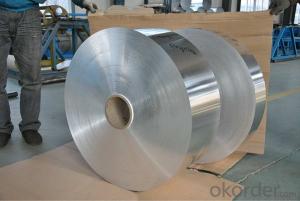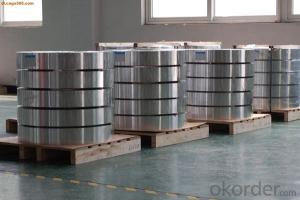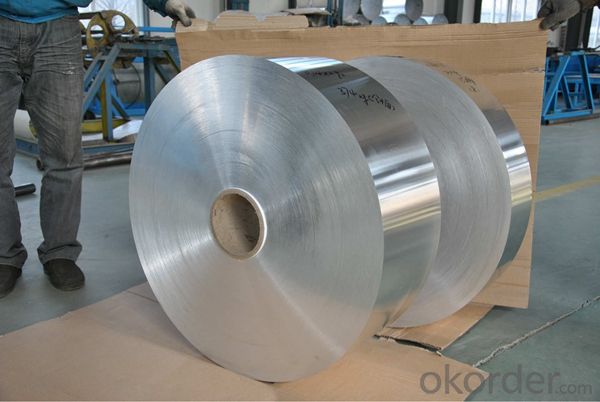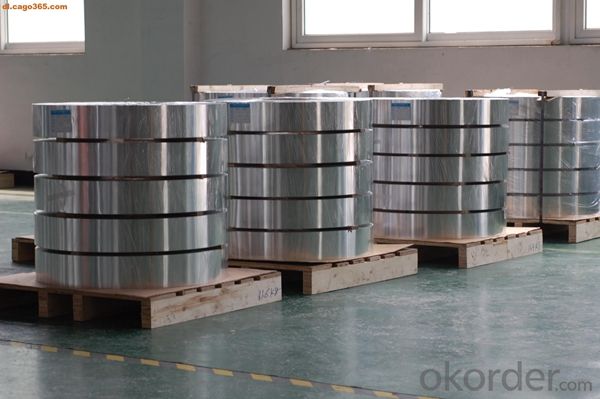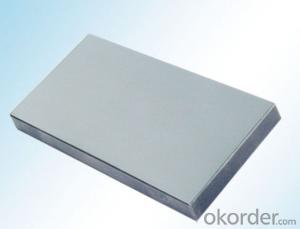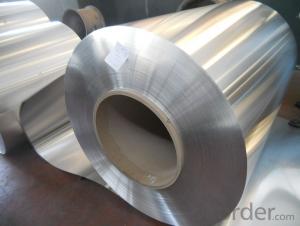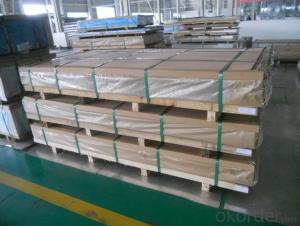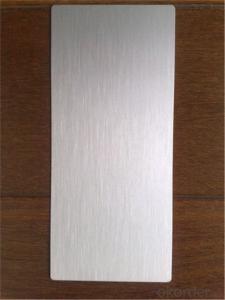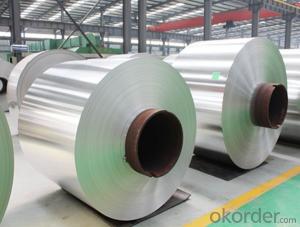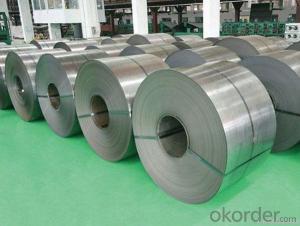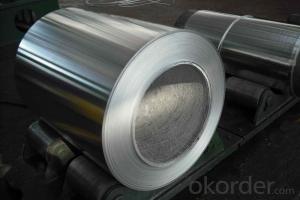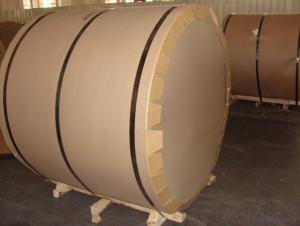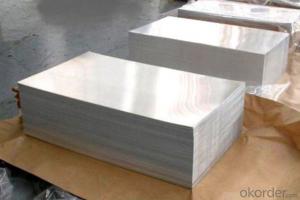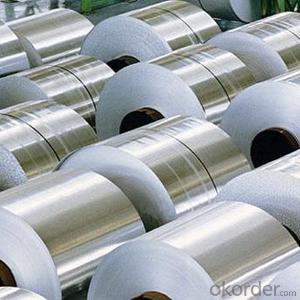Wholesale Aluminum Sheets - Mill Finished Aluminum Coil Alloy AA3XXX for Building Outer Doors
- Loading Port:
- Shanghai
- Payment Terms:
- TT OR LC
- Min Order Qty:
- 5 m.t.
- Supply Capability:
- 10000 m.t./month
OKorder Service Pledge
OKorder Financial Service
You Might Also Like
Specification
1. Specification of Mill Finished Aluminum Coil Alloy AA3XXX for Building Ourter Doors
ALLOY | AA1050 AA1060 AA1070 AA1100 ETC AA3003 AA3004 AA3005 AA3104 AA3105 ETC AA5005 AA5052 AA5083 AA5754 ETC |
TEMPER | H14,H18,H24,H26,H32 |
THICKNESS | 0.2MM-20MM |
WIDTH | 10mm-1500mm |
COIL WGT | 2Mt - 3Mt |
Coil ID | 20" |
SURFACE | Mill finished etc |
STANDARD | GB/T 3880-2006 |
2. Application of Mill Finished Aluminum Coil Alloy AA3XXX for Building Ourter Doors
(1).Interior: wall cladding, ceilings, bathrooms, kitchens and balconies, shutters, doors...
(2).Exterior: wall cladding, facades, roofing, canopies, tunnels,column covers , renovations...
(3).Advertisement: display platforms, signboards, fascia, shop fronts...
3. Feature of Mill Finished Aluminum Coil Alloy AA3XXX for Building Ourter Doors
Surfact Quality :
Be free from Oil Stain, Dent, Inclusion, Scratches, Stain, Oxide Dicoloration, Breaks, Corrosion, Roll Marks, Dirt Streaks and other defect which will interfere with use,
Mechenical Property:
Chemical Composite and Mechanical Property
4. Certificate:
SGS and ROHS(if client request, paid by client), MTC(plant provided), Certificate of Origin(FORM A, FORM E, CO), Bureau Veritas and SGS (if client request, paid by client), CIQS certificate
5. Image of Mill Finished Aluminum Coil Alloy AA3XXX for Building Ourter Doors
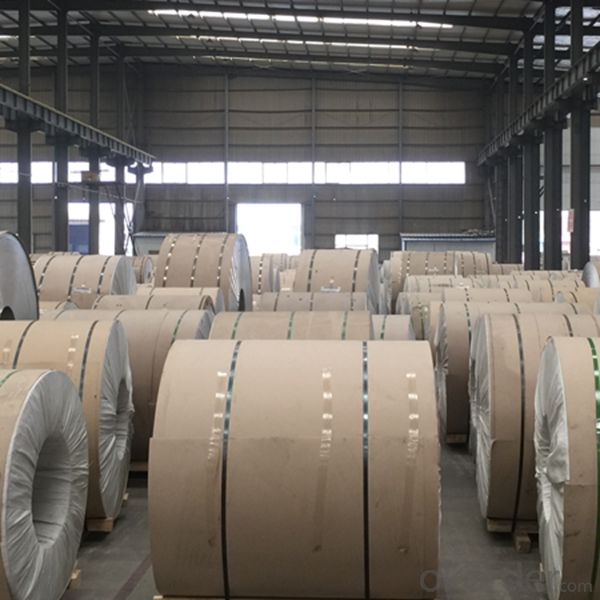
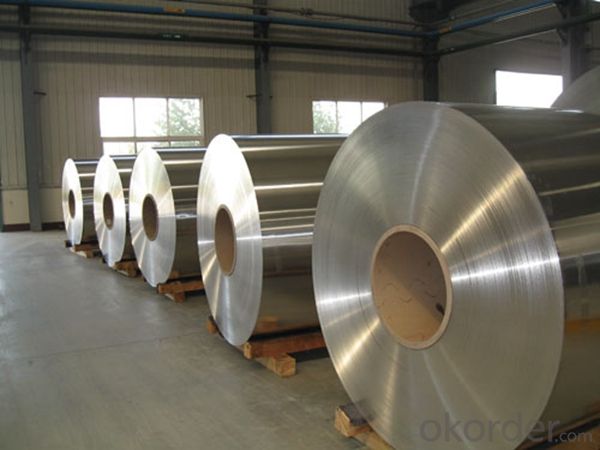
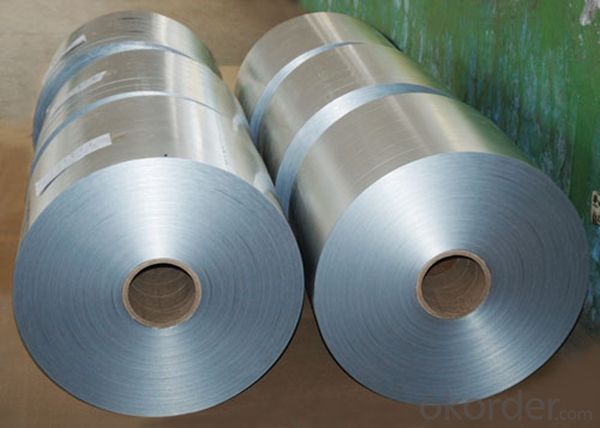
6. Package and shipping of Mill Finished Aluminum Coil Alloy AA3XXX for Building Ourter Doors
First, plastic cloth with drying agent inside; Second, Pearl Wool ; Third, wooden cases with dry agent , fumigation wooden pallets, aluminum surface could cover blue PVC film
7. FAQ
1) What is the delivery time?
Dpends on actual order, around 20 to 35 days
2)What is the QC system:
We have QC staff of 20 persons and advanced equipment, each production is with MTC traced from Aluminum ingot lot.
3) What market do you mainly sell to?
Australia, America, Asia, Middle East, Western Europe, Africa etc
- Q: Are the aluminum sheets suitable for manufacturing electronic enclosures?
- Yes, aluminum sheets are suitable for manufacturing electronic enclosures. Aluminum is a popular choice for electronic enclosures due to its excellent combination of strength, durability, and lightweight properties. It offers good electrical conductivity, making it suitable for dissipating heat generated by electronic components. Additionally, aluminum sheets can be easily shaped, formed, and machined to meet the specific requirements of electronic enclosures, allowing for customization and flexibility in design. Its corrosion resistance properties also make it suitable for protecting electronic devices from environmental factors. Overall, aluminum sheets provide an ideal material solution for manufacturing electronic enclosures.
- Q: This question asks for methods to preserve the aesthetic quality of aluminum sheets and prevent deterioration over time.
- <p>To maintain the appearance of aluminum sheets over time, follow these steps: 1. Regularly clean the sheets with a mild detergent and water to remove dirt and grime. 2. Avoid using harsh chemicals or abrasive materials that can scratch the surface. 3. Apply a protective coating or sealant if the sheets are exposed to harsh weather conditions or corrosive environments. 4. Inspect the sheets periodically for signs of corrosion or damage and address any issues promptly. 5. Keep the aluminum sheets dry, as moisture can lead to rust and other forms of deterioration. Proper maintenance will help preserve the appearance and longevity of aluminum sheets.</p>
- Q: Can 101 aluminum sheets be bent without cracking or breaking?
- No, it is highly unlikely that 101 aluminum sheets can be bent without cracking or breaking.
- Q: My frame snapped and I want to fix it by welding it back together. In order to do that, I need to know what all is in the aluminum.
- You can NOT weld back an aluminum frame unless you have the facilities to anneal and heat treat the frame again. Rewelding without the post treatments will result in a very soft area around the new weld causing sudden catastrophic failure... this means if you are riding it could fail at any time causing injury or death. EDIT: Wait just a durn minute. The 2100 and 2300 had carbon fiber tubes bonded to aluminum lugs and stays. If your bike failed then you ABSOLUTELY should not try to weld it. The heat from welding (even if you had post treatment facilities) would destroy the bond between the CF and aluminum. Fair warning- cut the frame apart and throw it away.
- Q: i've been looking at stove top espresso coffee makers and they are all made of either aluminum or stainless steel. so i wonder is one metal any better than the other as far as coffee makers go? i thought before i actually buy one i'd like to hear from you - do you have a stove top espresso maker? what metal is it and what do you think of it? looking forward to reading your thoughts - thanks everyone!cheers!
- For general cookware both metals have different attributes. Aluminum conducts heat better and therefore pots and pans heat up more evenly. Stainless steel on the other hand has a nicer look and doesn't discolor and oxidize the way aluminum might, and it cleans up better. For an espresso maker you really don't need even heating since you are only heating water in a really small area. Therefore you should go with stainless steel.
- Q: Can aluminum sheets be used for decorative ceiling panels?
- Yes, aluminum sheets can be used for decorative ceiling panels. Aluminum is a versatile material that offers many benefits for this purpose. It is lightweight, durable, and corrosion-resistant, making it suitable for long-term use. Additionally, aluminum sheets can be easily shaped and molded into various designs, patterns, and textures to create visually appealing ceiling panels. These panels can be finished with different coatings or finishes to enhance their aesthetic appeal and match the desired decor style. Furthermore, aluminum is a sustainable and eco-friendly material as it can be recycled, making it an ideal choice for those who prioritize environmental consciousness. Overall, aluminum sheets are an excellent option for decorative ceiling panels due to their versatility, durability, and aesthetic potential.
- Q: What are the semi hard ones? What are the alloys? What are the anti rust ones, such as 3003505210606061, 7075?
- Three 3000 series aluminum representing 30033003 3A21. Also known as China's 3000 series aluminum antirust aluminum production process is more outstanding.3000 series aluminum is made of manganese as main components. The contents of 1.0-1.5 in between. Is a series of anti rust function better. Routine application in air conditioning, ice box, car etc. in the moist environment, price more than 1000 series, is a commonly used alloy series.Four 4000 series aluminum on behalf of the 4A01 4000 series aluminum plate belongs to the high silicon content series. Usually silicon content between 4.5-6.0%. Belongs to the building material, mechanical parts, forging materials, welding materials; low melting point, good corrosion resistance of the product description: has the characteristics of heat resistance, wear resistanceFive series of 5000 representative 5052.5005.5083.5A05.5000 series is a commonly used aluminum alloy aluminum series, the main elements of magnesium, magnesium content in 3-5%. Also called aluminum magnesium alloy. The main characteristics of low density, high tensile strength, elongation rate is high. In the same area under the weight of the aluminium magnesium alloy is lower than that of the other series. It is commonly used in aviation, such as aircraft fuel tank. The application in the conventional industries are more widely. The processing technology for slab continuous casting and rolling, which belongs to the aluminum plate series so can do deep processing of aluminum oxidation. More mature system in our country in 5000 series aluminum one.Six series of 6000 representatives of 6061 mainly contains two elements of magnesium and silicon, so the advantages of 4000 series and 5000 Series 6061 is a cold forging processing of aluminum products, suitable for applications in corrosion resistance, oxidation resistance requirement. Use good interface features excellent, easy coating, processing is good. Can be used for low pressure weapons and aircraft joints.
- Q: I need help with this question for a report i'm doing, it's about recycling aluminium, please could you give me some reasons why to recycle aluminium and eg.saves energy, and how it does eg. saves energy by...Thanks a lot this will help me loads.P.S this is just a report for my science project.
- Mining of metals causes huge environmental damage, polluting water and using vast amounts of energy which has a large environmental cost. savingiceland.puscii.nl/?language... This is an activist site fighting Aluminium mining in Iceland. Metals like oil and other materials are also finite, they are not endless, so they're getting more expensive and may run out. Metals are very useful and shouldn't be wasted. I always pick up ally cans in the street and put them in the nearest recycling bin.
- Q: Are the aluminum sheets suitable for architectural applications?
- Yes, aluminum sheets are suitable for architectural applications due to their lightweight, corrosion-resistant, and malleable properties. They can be easily formed into various shapes and sizes, making them ideal for constructing facades, roofs, and window frames in buildings. Additionally, aluminum sheets offer a modern aesthetic appeal and require minimal maintenance, making them a popular choice in the architectural industry.
- Q: Can aluminum sheets be bent or formed into different shapes?
- Yes, aluminum sheets can be bent or formed into different shapes. Aluminum is a highly malleable metal, which means it can be easily shaped or formed without breaking or cracking. This property makes it highly versatile for various industries and applications. Aluminum sheets can be bent, rolled, or pressed to create different shapes or forms, such as cylinders, cones, or complex geometric structures. The ability to bend or form aluminum sheets opens up a wide range of possibilities for manufacturing, construction, automotive, aerospace, and many other industries.
Send your message to us
Wholesale Aluminum Sheets - Mill Finished Aluminum Coil Alloy AA3XXX for Building Outer Doors
- Loading Port:
- Shanghai
- Payment Terms:
- TT OR LC
- Min Order Qty:
- 5 m.t.
- Supply Capability:
- 10000 m.t./month
OKorder Service Pledge
OKorder Financial Service
Similar products
Hot products
Hot Searches
Related keywords
